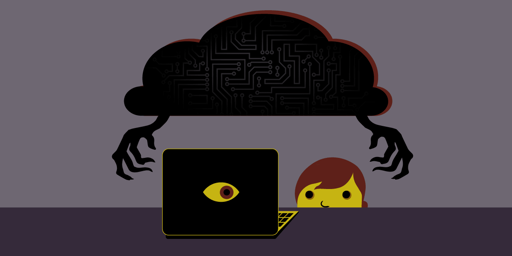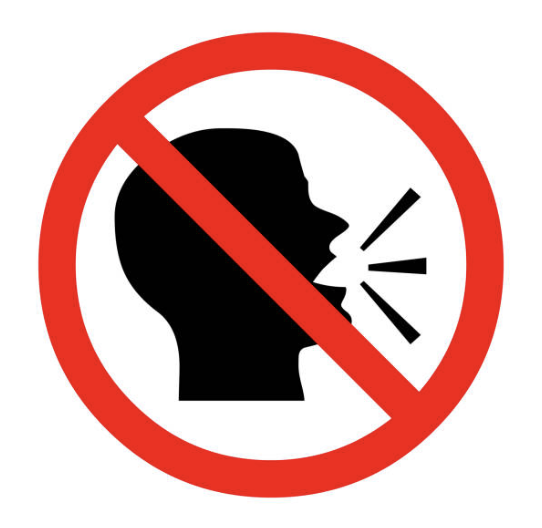- cross-posted to:
- [email protected]
- cross-posted to:
- [email protected]
Following the same legislative and narrative pattern as the EU for “Chat Control”, similar laws and rhetoric are now cropping up in the US. The narrative is “save the children from porn” but the action is censorship, mass surveillance, and the elimination of privacy on the Internet.
As of this writing, Wisconsin lawmakers are escalating their war on privacy by targeting VPNs in the name of “protecting children” in A.B. 105/S.B. 130. It’s an age verification bill that requires all websites distributing material that could conceivably be deemed “sexual content” to both implement an age verification system and also to block the access of users connected via VPN. The bill seeks to broadly expand the definition of materials that are “harmful to minors” beyond the type of speech that states can prohibit minors from accessing—potentially encompassing things like depictions and discussions of human anatomy, sexuality, and reproduction.
Wisconsin’s bill has already passed the State Assembly and is now moving through the Senate. If it becomes law, Wisconsin could become the first state where using a VPN to access certain content is banned. Michigan lawmakers have proposed similar legislation that did not move through its legislature, but among other things, would force internet providers to actively monitor and block VPN connections. And in the UK, officials are calling VPNs "a loophole that needs closing.
FTFY:
Lawmakers
Want to Ban VPNs—And TheyHave No Idea What They’re DoingI know governments work slow but these guys are still trying to figure out if freeing the slaves was a good idea.
Governments barely work at all
Because almost EXACTALLY half of them KNOW that freeing the slaves was a bad idea.
Lawmakers
Want to Ban VPNs—And They HaveNoIdeaWhatThey’re Doing
At some point we’ll just have to tunnel IP over DNS, and then they can’t block traffic without destroying the entire internet. Not that it’ll dissuade them.
I see you and raise you this:
This method actually has bigger throughput if you need to transfer lot of data.
RTT is just ‘a bit’ slower than via usual transfer channels.
pingfs
Now that’s something I must try.
“Legislators Want to Ban the Internet”
Well, no, it wouldn’t. The bods that make these decisions still live like it’s 1950 and dream of an authoritarian future of masters and slaves.
What good is The Google or The AI when you’re sipping champagne up an ivory tower or out on the ocean being waited on hand and foot on a gleaming yacht?
It will just be a few approved sites that you are allowed to visit, and just by chance those sites are the ones that pay the goverment the most! Those sites will have records in the approved DNS, that you can not change. Other DNS requests are blocked, along with everything else that isn’t approved.
Welcome to:
People’s Republic of America
美利坚人们共和国
Long Live Chairman Trump
Maybe he reign a thousand years!
/s
Wisconsin already blocks access to all goverment websites if you use a VPN. I can’t even check the garbage collection schedule for my town. I always thought it was this misguided concept that they thought only “hackers” would want to be anonymous. It seems they are really working for the data brokers, who don’t want anyone to be anonymous.
Sounds like a good time to deploy a bunch of small raspberry pi vpn nodes at local libraries and other free wifi spots. I don’t know enough about ip to know if they can track you past that first hop
Could it simply be that your VPN puts you in a region which Wisconsin doesn’t want to provide access? So if your current VPN server is in Vancouver, maybe Wisconsin blocks traffic from outside of WI or the US, because why should/would any legit “Vancouver” person need access to Wisconsin data?
Could be a Wisconsin resident away on a trip longer than intended, wants to check schedules before deciding to ask a friend to drag some of their bins to the kerb and back?
What’s the benefit to WI in denying them access?
Soooo… screw the network of a bunch of companies I guess, lol. I have to use my work’s VPN while working from home, but the way they set it up I also have to use it while working at the office. This is far from a unique setup over here. If this happens to be the same in Wisconsin I have some bad news for them.
Also schools. My kids state issued laptops use vpns to connect to the schools networks as well as in a true irony limit what sites they can access.
It’s actually so limiting it’s nearly impossible to print the required assignments on a printer in our home but that’s a different rant.
That’s basically any modern network. There is no more trivial “inside our network” vs. “outside on the internet”. Networks are segmented on a need-to-know principle. You can access some information from the public internet. Some other things can be accessed from the internet, but only on corporate devices, if your user AND device is whitelisted. And then you have one or more VPNs on top of that for more sensitive stuff. Also those VPNs may be “dynamic” in the sense that it may also be dependent on the user, device and authentication method what is currently accessible over that VPN connection.
Lawmakers Have No Idea What They’re Doing
Sounds like a headline for literally every issue regarding technology.
Porn websites should just start blocking access for any lawmakers that are okay with this legislative garbage.
s/blocking access/releasing the viewing history of/
They might be using onlyfans
As usual. Our government, your government, totally clueless about how the internet works or what it actually is. And with all the money they waste every day, there seems to be no cent left to get some professional who could explain things on a politicians mental level. We’ve got people who successful teach computers to seniors, maybe politicians should hire some…
I think this is mostly a symptom of the gerontocracy. Most elected officials have not grown up with computers, which is already likely to make them incurious about them. Couple that with being in office so long, likely developing a very high opinion of themselves that they know best. I would guess a significant minority is actively hostile to learning anything about computers, so you can hire any professional to explain stuff with baby talk, it won’t work on them. Combine that with the rest of the technologically illiterate politicians just being indifferent, and you get this kind of policy.
My home network is all under Mullvad for a few months now, and I’ve noticed that recently a lot of pages block it. I just get a 403 error and I need to disable it to access. Honestly I expect this to happen more and more, which is BS.
Is it due to geo-blocking?
I have noticed that some sites would load my local language version even if I point out original site. E.g. southpark.cc.com would stubbornly redirect to southpark.de no matter how you tried to trick it. And, of course, some content on some sites would also report that is is unavailable in my region.
No, I actually use an exit on my country for that reason.
Keep in mind that a lot of webpages block traffic from datacenters, as they are trying to protect themselves from AI scrappers. I recently had an issue with OpenAI making thousands of requests to one of my servers.
OpenAI is the leach that keeps on leaching
ah yes, every time they want to do something abhorrent, they cry “its for the children!” to immediately try and silence any critics.
There’s a genocide going on. It’s not the porn degenerates, it’s the moral religious people. Don’t push this garbage onto children. At least wait until they’re 25 and their brain is fully developed before you teach them that women are the problem, that little boys should be fondled by grown men, and that it’s OK to commit a genocide against the people who pray to a different sky wizards than you.
…really hoping this comment is dripping with sarcasm.
It’s not sarcasm, it’s cynicism.
Why? Do you identify as a witch burner, a hospital bomber, or someone that pushes gays off roofs, or something?
But it’s true, and not even exaustive
If I understood it correctly, per that legislation and given how the technology works, adult sites would have to block everybody coming to them from a known VPN exit point, not matter where the user actually is (because a site can’t really tell were a user actually is when they’re behind a VPN) to comply with it, meaning that it would impact everybody everywhere in the World using a VPN.
De facto Wisconcin’s legilslature is trying to imposed their will not only on those who live in Wisconsin, not only on those who live anywhere in the US but on those who live anywhere in World.
Aaaaaaand I can switch to residential proxies, I can still appear from wherever the fuck I want.
You. Can’t. Stop. This.
All this will do is cause actual criminals to hide it better, that is it.
Theoretically the sites would have to block all IP addresses of all cloud providers, including massive ones such as Amazon AWS and Microsoft Azure, because people in Wisconsin can just run VPN Server software - which is side of the VPN were the network connections exit the encrypted tunnel and enter the Internet - in a container or virtual machine inside one those to have their own personal (or shared with whomever they want) VPN.
Similarly they would have to block all exit IPs of most companies because somebody in Winsconsin might be using the VPN of the company remotelly go to their company network and via that network access those sites and which point the connection will probably appear as originating from one of the company’s routers because of NAT.
The way the VPN technology works, theoretically every single IP address on the internet might be an exit point of a VPN which is being used by somebody in Winsconsin to access one of those sites, since one can even run VPN Server software on a mobile phone or Raspberry Pi.
Theoreticaly those sites have to block every single IP address which might directly or indirectly be used that way.
This law is completelly insane.
Ok, so don’t use a vpn, just go to a proxy running in another country that is connected to a vpn?
Or… They ban VPNs and overnight the VPN providers start offering cheap VPS services that can run a self-managed VPN over them, or proxies, or tor exit nodes, or Wireguard/Tailscale exit nodes, or… <The list goes on indefinitely and will be added to as needed by users>.
You can’t ban people running private servers and routing encrypted data through them unless you want to shut down 90% of the internet.
these people deserve a big FUCK YOU to the face, in front of an audience.
They understand what they’re doing. They’re treating the problem as a black box - they want to decide what you can do in the field where they are strong, making laws and rules as the (in their piss cockroach opinion) dominant apes in the crowd. They are breaking the technical possibility for you to avoid that. They don’t see a problem with breaking it for everyone, because if some use they need as well is broken so, they can make an exception for themselves, it’s in the domain of making rules too, and they can make punishments so gruesome that nobody will bother except for mafia and law enforcement, just like with heroine.
And the answer doesn’t lie in protecting VPNs or making technical means to avoid them further, by using plentiful possible information channels in the standards comprising the Internet. The answer lies in dipping them face into their own shit and saying “don’t do that again or I will kill you”. Because it’s a social, not technical, problem. It can be reduced to unauthorized people telling you what to do and you obeying.















